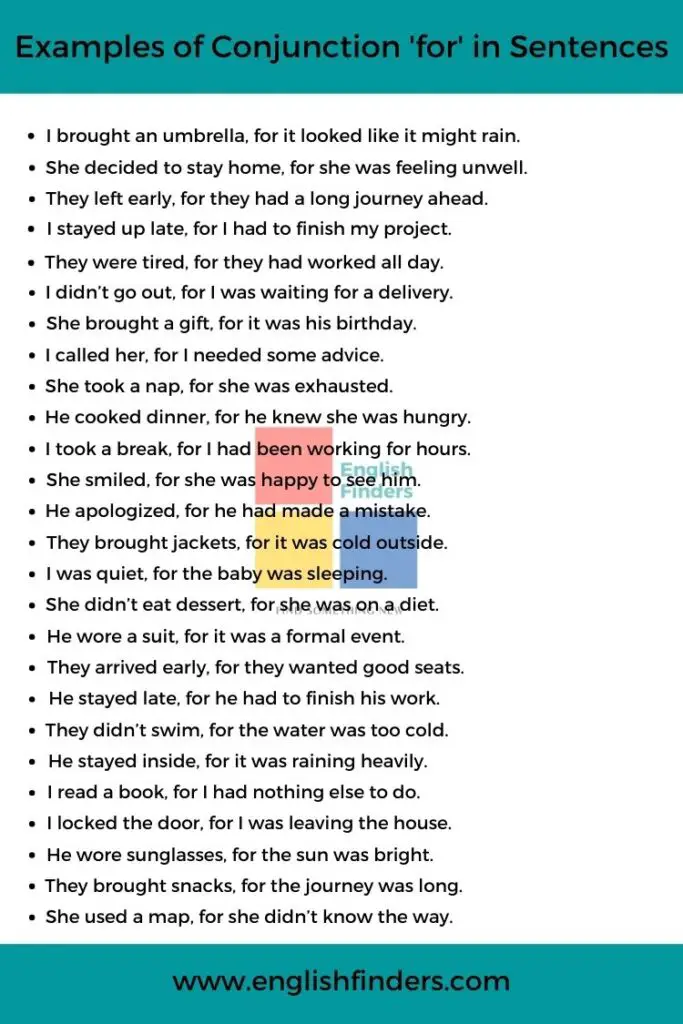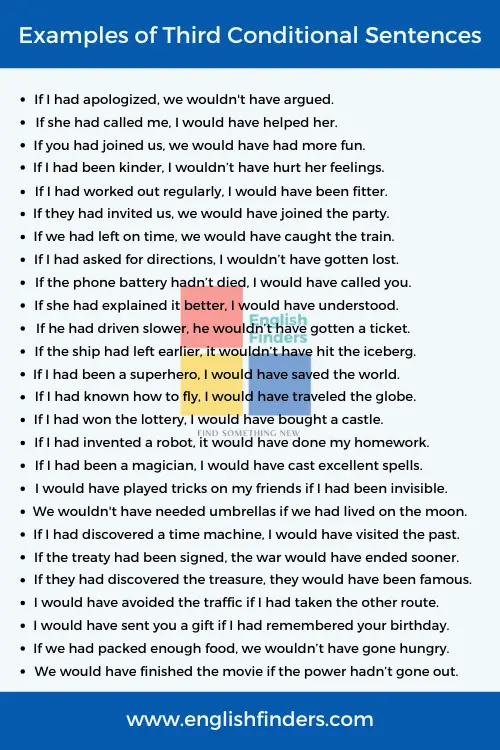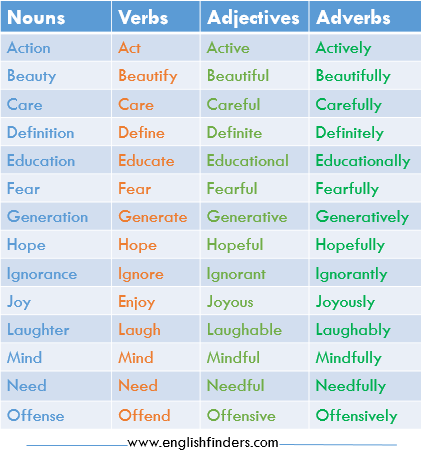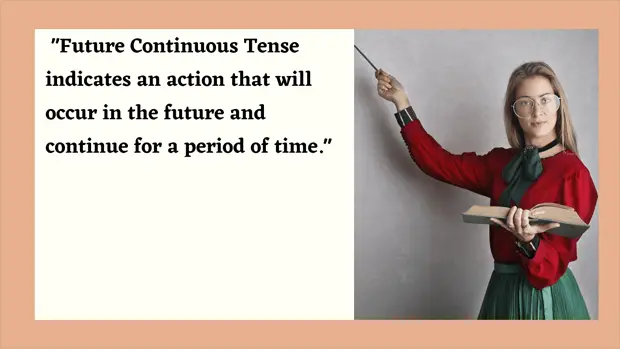Last updated on December 29th, 2024 at 08:54 pm
Conjunctions are essential in constructing smooth, coherent sentences. If you’re learning English grammar, understanding how to use conjunctions correctly can significantly enhance your writing and speaking skills. In this article, we’ll focus on one specific type of conjunction: “for.”
We’ll walk you through 50 examples to show you how “for” can be used in sentences to express reasons, purposes, or causes. So, let’s dive in and explore how you can make your English sound more natural and connected by using “for” effectively.
Examples of Conjunction “for” in Sentences
Let’s walk you through 50 example sentences with the conjunction “for”.
- I have bought an umbrella, for it looks like it might rain.
- She decided to stay home, for she was feeling unwell.
- He couldn’t attend the meeting, for he had another appointment.
- They left early, for they had a long journey ahead.
- I stayed up late, for I had to finish my project.
- We chose the scenic route, for we wanted to enjoy the view.
- She is excited, for she has just received good news.
- He has saved money, for he plans to buy a new car.
- They were tired, for they had worked all day.
- I didn’t go out, for I was waiting for a delivery.
- She brought a gift, for it was his birthday.
- He studies hard, for he wants to pass the exam.
- They moved to a new city, for he got a job there.
- I will call her, for I need some advice.
- She took a nap, for she was exhausted.
- He cooked dinner, for he knew she was hungry.
- They bought extra food, for they were expecting guests.
- I will take a break, for I have been working for hours.
- She is smiling, for she is happy to see him.
- He apologized, for he had made a mistake.
- They brought jackets, for it was cold outside.
- I was quiet, for the baby was sleeping.
- She didn’t eat dessert, for she was on a diet.
- He wore a suit, for it was a formal event.
- They arrived early, for they wanted good seats.
- I’m staying home, for I need to rest.
- She laughed, for the joke was funny.
- He stayed late, for he had to finish his work.
- They didn’t swim, for the water was too cold.
- I skipped breakfast, for I was in a hurry.
- She didn’t answer, for she didn’t hear the phone ring.
- He is staying inside, for it is raining heavily.
- They postponed the trip, for the weather was bad.
- I’m reading a book, for I have nothing else to do.
- She took notes, for she wanted to remember everything.
- He watched the news, for he wanted to stay informed.
- They practiced daily, for they had a big game coming up.
- I locked the door, for I was leaving the house.
- She drank water, for she was thirsty.
- He wore sunglasses, for the sun was bright.
- They brought snacks, for the journey was long.
- I wrote it down, for I didn’t want to forget.
- She used a map, for she didn’t know the way.
- He wore gloves, for it was very cold.
- They waited, for the train was delayed.
- I paid in cash, for I didn’t have my card.
- She carried an extra pen, for she often lost hers.
- He wore a hat, for it was sunny.
- They sat down, for they were tired of standing.
- I cleaned the house, for guests were coming over.
Learning the proper use of the conjunction “for” can greatly improve your English fluency and clarity. As we’ve seen through these 50 examples, “for” helps to provide reasons and explanations, linking thoughts smoothly. Integrating “for” into your sentences can convey your ideas more effectively and make your speech and writing sound more natural. Keep practicing; soon, using “for” will become second nature in your everyday English conversations.

Azizul Hakim is the founder & CEO of englishfinders.com. He is a passionate writer, English instructor, and content creator. He has completed his graduation and post-graduation in English language and literature.




